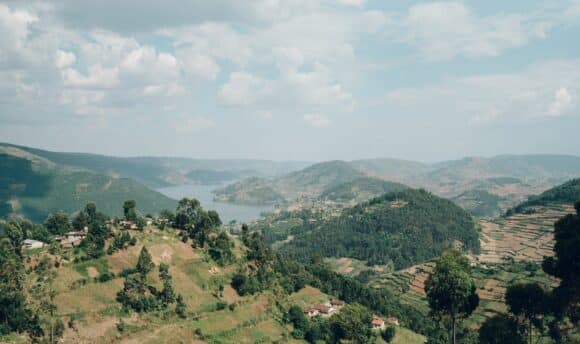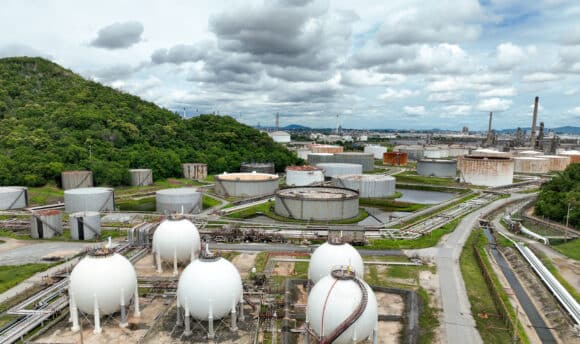Bermudan insurer extends the scope of existing coal policy to all fossil fuels
September 30, 2022 (Bermuda) – Setting a precedent for the North American insurance industry, Fidelis has announced a suite of ambitious climate policies that restrict underwriting for oil and gas activities, including fracking, Arctic oil and gas, and tar sands, as well as apply underwriting conditions for all oil and gas companies. These new commitments make Fidelis the first North American insurer and twelfth global insurer to restrict insurance coverage for conventional oil and gas projects and/or companies.
"We applaud Fidelis’ climate commitments, which make clear to the oil and gas sector and to governments around the world that oil and gas expansion is incompatible with the Paris Agreement’s goal of limiting warming to 1.5ºC. Fidelis has just raised the bar for the entire North American insurance industry, issuing a challenge to peers in Bermuda and in the US, specifically AXIS Capital, AIG, and The Hartford, to strengthen their own oil and gas restrictions."
As detailed in a press release from Fidelis last week, the company’s updated Environmental, Social and Governance (ESG) underwriting guidelines build on existing coal restrictions to rule out direct insurance at the project level for tar sands oil extraction, Arctic oil and gas exploration or drilling, and fracking, including for shale oil and natural gas, as well as for any company that derives more than 20% of its revenue from these activities.
With steps to immediately exclude underwriting for the most polluting industries as well as concrete policies to hold its clients in the energy sector accountable to achieving net-zero commitments, this policy elevates Fidelis as a climate leader in the insurance industry globally.
Notable parts of the expanded policy include:
- Restrictions on oil and gas fracking that apply at the project and company levels, a first among North American insurers and one of the very few fracking exclusion policies worldwide.
- No direct insurance for Arctic oil/gas exploration and drilling at the company and project level with an expansive definition of the Arctic that covers a greater geographic region compared to most other insurers.
- Screening for environmental impacts of greenfield exploration and drilling in the oil and gas sector, only supporting projects with “strong economic rationale.”
- By January 1, 2024, insurance only for oil and gas companies with clear commitments and a timeline for achieving net zero emissions, in line with the Paris Agreement goals.
The strength and impact of the last two guidelines above will be determined by details not yet provided. According to the International Energy Agency, investment in new oil and gas supplies are not compatible with a net zero goal.
Among major North American energy insurers, only AIG has restrictions on underwriting Arctic energy projects, though its policy lacks geographic definition and addresses only exploration. Existing oil/gas sector commitments from Chubb, Travelers, and The Hartford only pertain to tar sands oil.
“Fidelis’ new climate policies expose where AIG’s commitments fall woefully short: oil and gas. AIG must live up to its climate leadership claims and cut off support for all new drilling and fracking operations that spell disaster for our climate. As one of the world’s biggest oil and gas insurers, AIG cannot credibly pledge to reach net zero without addressing its outsized role in enabling new fossil fuel projects.”
On Arctic energy, Fidelis joins fifteen international insurers that have ruled out support for oil and gas drilling in the Arctic National Wildlife Refuge. Notably, Fidelis’ policy defines the Arctic much more broadly than the majority of those insurers, specifically referencing the definition from the Arctic Monitoring and Assessment Programme, which encompasses both High Arctic and sub-Arctic regions. According to Reclaim Finance, there are currently 599 oil and gas fields listed in this region, and production is slated to increase by 20 percent in the next five years.
“We welcome Fidelis to the fast-growing list of insurance companies that have committed to protecting Iizhik Gwats’an Gwandaii Goodlit, the Sacred Place Where Life Begins. These companies know they cannot underwrite projects that violate our rights, destroy our land, hurt our animals, and continue to fuel the climate crisis, which is already being disproportionately experienced by the Gwich’in and other Indigenous Peoples in the Arctic. We urge American insurers to demonstrate the same integrity and foresight with policy that protects people and the planet.”
The Gwich’in Steering Committee has engaged insurers since 2020 to enact policy that protects sacred land, and in 2021 published an industry scorecard, which has seen commitments more than double since its release.
With the adoption of the tar sands policy, Fidelis is the twenty-first insurer globally to restrict insurance coverage of the carbon-intensive sector. However, Fidelis’ policy does not follow best practice and rule out support for tar sands transport (midstream) projects, such as the Trans Mountain pipeline.
In announcing the policy, Fidelis Chairman and Group Chief Executive Officer Richard Brindle urged insurers and brokers to follow suit “to ensure that the insurance industry is not supporting damaging business practices.” Brindle is widely viewed as an “underwriting innovator,” and he has been outspoken about the risks of climate change to the insurance sector for years.



